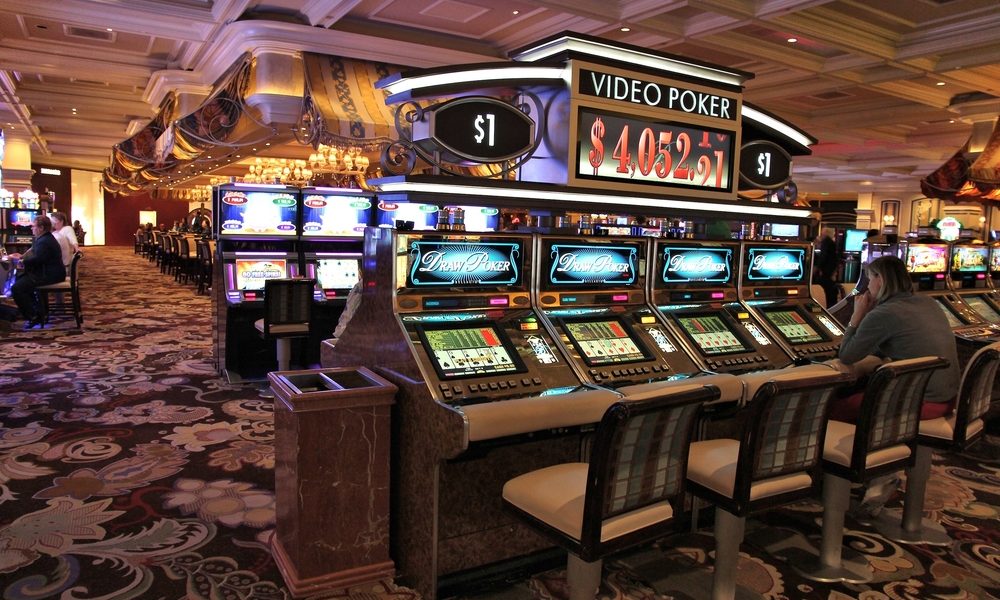While tariffs remain an X factor in the gaming universe, industry CEOs were generally sanguine about the American economy during the East Coast Gaming Congress held in Atlantic City this week. Barry Jonas of Truist Securities outlined some of the salient discussions in an April 16 investor note.
“The current administration’s rollout of various policies (including tariffs and drastic spending cuts) continue to cause uncertainty in the markets,” Jonas reported. He continued that attendees agreed it was early and the total effect of tariffs had yet to manifest.
Bulwarks against tariffs were perceived to be regional casinos and igaming. “Panelists did seem more concerned on softer international travel trends, to which Vegas is more susceptible,” Jonas chronicled.
Attendees found an upside in the economic turmoil. They believed Washington, D.C.’s sapping of state budgets would make the wider adoption of igaming more likely.
Still, consensus eluded the assembled CEOs on igaming’s desirability. David Cordish of Cordish Gaming reiterated his opposition, seeing online casinos as a threat to the jobs created and taxes generated by land-based casinos. He also made the point that the spread of igaming could tempt Silicon Valley giants like Amazon and Facebook to enter the fray and disrupt the legacy operators.
MGM Resorts International CEO Bill Hornbuckle and Caesars Entertainment CEO Tom Reeg brushed aside such concerns. They said they were unworried about cannibalization, citing the social aspect of terrestrial casino gambling. Hornbuckle called igaming a “net add,” pointing to MGM’s 50 percent enlargement of its database (to 45 million people) through online activity.
Jonas reported, “Tensions do remain between igaming and ilottery, as (some) online-lottery games look very similar to certain igaming products.” Still, Scientific Games Executive Vice President James Schultz opined that the two branches of gaming should work more in tandem, to have more success at state-level legalization and for the furtherance of interstate gambling compacts.
Lottery couriers, much in the news of late, were said to be both a benefit and a challenge to the lottery business overall. “Panelists stressed the need for solid communication between the two and expect state tolerance to vary from total acceptance to a complete ban,” Jonas wrote.
Turning to sweepstakes-based games, American Gaming Association President Bill Miller attacked them as untaxed entities that lack any aspect of responsible gambling. He advocated a ban on them, as he believes they harm the larger gaming industry,
Both Miller and Rush Street Interactive CEO Tim Drehkoff applauded the efforts of Virginia’s Gov. Glenn Youngkin and legislature to stamp out sweepstakes games. Miller called it a working model for other states and Drehkoff observed that Rush Street’s revenues have grown as much as 30 percent since the Virginia ban was incepted on November 15, 2023.
Drehkoff also played up slot routes as a source of taxable income, saying they had generated $3 billion in revenue in Illinois alone. PCI Gaming CEO Jay Dorris chimed in that such routes in Pennsylvania should be taxed at the same 54 percent as casino slot machines.
The incursion of predictive markets into sports betting was another topic of concern. Miller thought “some aspects” of them were appropriate — but not sports betting. He maintained that they undermine the state-level frameworks that have been in place since 2018.
Jonas reported, “Miller is pleased with several states responses in filing cease-and-desist letters, but acknowledged that predictive operators have yet to pull back meaningfully.” He also predicted that the Commodity Futures Trading Commission would be in over its head if it tried to regulate gambling.
Other hot topics included New York City casinos, with panelists agreeing that MGM Empire City and Resorts World New York had inside tracks on Class III status. They thought the third casino would more likely go to Queens or another suburb, rather than Manhattan. The impact on Atlantic City was predicted to be great: as much as a 25 percent loss of revenue.
Two CEOs were particularly optimistic about the prospects for the industry. Hornbuckle “highlighted the resilient attributes of the gaming industry, particularly during times of economic downturns.”

He allowed that the pandemic, which produced an industry-wide shutdown, was a different scenario, but noted that MGM had come out of it with increased market share in Macau. There, it now enjoys approximately 15 percent of the market, up from a pre-pandemic nine percent. Domestically, Hornbuckle stressed that even at the worst of the Great Recession, his company’s Las Vegas properties had averaged 82 percent occupancy. He added that none of MGM’s regional casinos went into decline in 2008.
Caesars’s Reeg “sees a dichotomy between investor expectations and what’s going on in actual business operations.” He felt the economy could become dire but not until much later than investors expect.
Were a recession to hit, Reeg predicted, Caesars’ igaming and sports betting businesses would cushion the blow. He even found upside in the high volatility of single-game-parlay sports wagering, saying this would lead investors to place greater valuations on the stock.
Internationally, Hornbuckle emphasized Japan, where MGM is building a resort in Osaka and which he expects will be a $30 billion per year market. “Thailand is another market that Mr. Hornbuckle is monitoring closely, given the size and cheap cost of construction and labor,” Jonas recorded, adding that Hornbuckle was — closer to home — monitoring the situation in Texas as well, but had low expectations of it.



